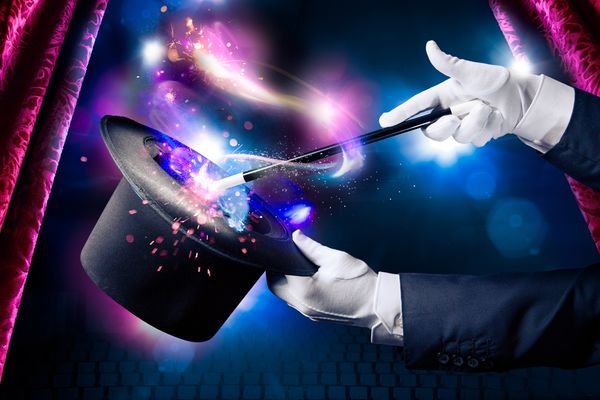7.1.1
Othello
Othello
Othello
At the beginning of the play Othello appears unshakeable. He has risen within the military to become an accomplished general. This process filled him with pride in his achievements.


Othello's confidence
Othello's confidence
- Brabantio accuses Othello of witchcraft, charms and spells but Othello soon shakes this off, not by saying this is false but by the fact that he has a ‘perfect soul’.
- This confidence is what has made him attractive to Desdemona, even though he is a good deal older than she is.


Othello's language
Othello's language
- Desdemona also falls in love with him because he has been a good storyteller, and it is true that in the opening part of the play Othello’s language is very measured and beautifully poetic.
- Even racial slurs cannot put a dent in his armour.


Desdemona
Desdemona
- The only person who can initially put a dent in Othello however, is Desdemona.
- His reaction to seeing her on the island of Cyprus shows that under the military exterior, something is more human:
- ‘It gives me wonder great as my content / To see you here before me’.


Othello and love
Othello and love
- It is almost as if Othello is not used to married life, and that negotiating a committed relationship may be even more difficult than winning a military campaign.
- When he rages against Cassio and Montano for their brawl together, this is the first indication that not all is well.


Integrity
Integrity
- Othello is motivated also by his own monolithic view of his own integrity.
- Those who have integrity in his life are always deemed honest and filled with dignity.
- However, his views of this are sometimes misplaced; something which Iago picks up.
Othello and Iago
Othello and Iago
Othello is motivated also by his own monolithic view of his own integrity. Those who have integrity in his life are always deemed honest and filled with dignity. However, these views are sometimes misplaced; which Iago picks up.


Othello’s flaws
Othello’s flaws
- Iago exploits Othello’s flaws:
- His arrogance and pride.
- His notion that evil does not exist in others.
- His possessive love for Desdemona.


Othello and Desdemona
Othello and Desdemona
- When contemplating love Othello falls into a swoon thanks to Iago’s manipulation because he is unused to such emotions.
- Although both are adults, Othello and Desdemona have childish tendencies.


Othello's suspicion
Othello's suspicion
- Once Iago has lit the fire of suspicion in his Othello’s brain, he will leave the fire to burn on Othello’s personality traits.
- Thus, it is not Iago, but Othello himself who ranges between love and hate for his wife, and who becomes so obsessive over her supposed love for Cassio.
- When Othello suffocates her, he is almost trying to cure his own warring mind rather than any punishment for her.
Othello's Suicide
Othello's Suicide
After Othello has suffocated Desdemona he becomes filled with self-hate and disgust, but at the same time, he seems to regain some of his earlier dignity, knowing which way he now must go.


Othello's suicide
Othello's suicide
- The moral code Othello applied on everyone else must now be applied on himself, and this is why he chooses suicide.
- The outside world has seemingly attacked him enough, and he must now escape it.
- At the end of the play, Othello is back to being an outsider or ‘other’ again.


Othello's flaws
Othello's flaws
- It appears that Othello cannot cope with true love—or more accurately, realistic love.
- He can cope with idealised and romantic love, but because of his own flaws he is unable to weather the storm of an assault upon him and his wife.
- He is too quick to believe rumour and gossip, and has been too easy to manipulate.


Tragic hero
Tragic hero
- When Shakespeare constructed Othello he created a new kind of tragic hero.
- However, Othello is now one of the models for how a tragic hero operates.
- In believing Iago’s lies, and in choosing to extinguish Desdemona’s life, he opens himself up to tragic forces and chaos.
1Context
1.1Introduction
1.3Othello
2Act One: Summaries & Themes
2.1Act and Scene Summaries
2.2Scene One
2.3Scene Two
3Act Two: Summaries & Themes
3.1Scene One & Two
3.2Scene Three
4Act Three: Summaries & Themes
5Act Four
5.1Scene One
5.2Scene Two
5.3Scene Three
6Act Five
6.1Scene One
6.2Scene Two
7Character Profiles
7.1Major Characters
7.2Minor Characters
8Key Themes
8.1Love & Tragedy
8.2Other Key Themes
9Writing Techniques
9.1Writing Techniques
10Critical Debates
10.1Criticism & Performance
11Approaching AQA English Literature
11.1Specification A
11.2Specification B
12Issues of Assessment
12.1The Exams
Jump to other topics
1Context
1.1Introduction
1.3Othello
2Act One: Summaries & Themes
2.1Act and Scene Summaries
2.2Scene One
2.3Scene Two
3Act Two: Summaries & Themes
3.1Scene One & Two
3.2Scene Three
4Act Three: Summaries & Themes
5Act Four
5.1Scene One
5.2Scene Two
5.3Scene Three
6Act Five
6.1Scene One
6.2Scene Two
7Character Profiles
7.1Major Characters
7.2Minor Characters
8Key Themes
8.1Love & Tragedy
8.2Other Key Themes
9Writing Techniques
9.1Writing Techniques
10Critical Debates
10.1Criticism & Performance
11Approaching AQA English Literature
11.1Specification A
11.2Specification B
12Issues of Assessment
12.1The Exams
Unlock your full potential with Seneca Premium
Unlimited access to 10,000+ open-ended exam questions
Mini-mock exams based on your study history
Unlock 800+ premium courses & e-books